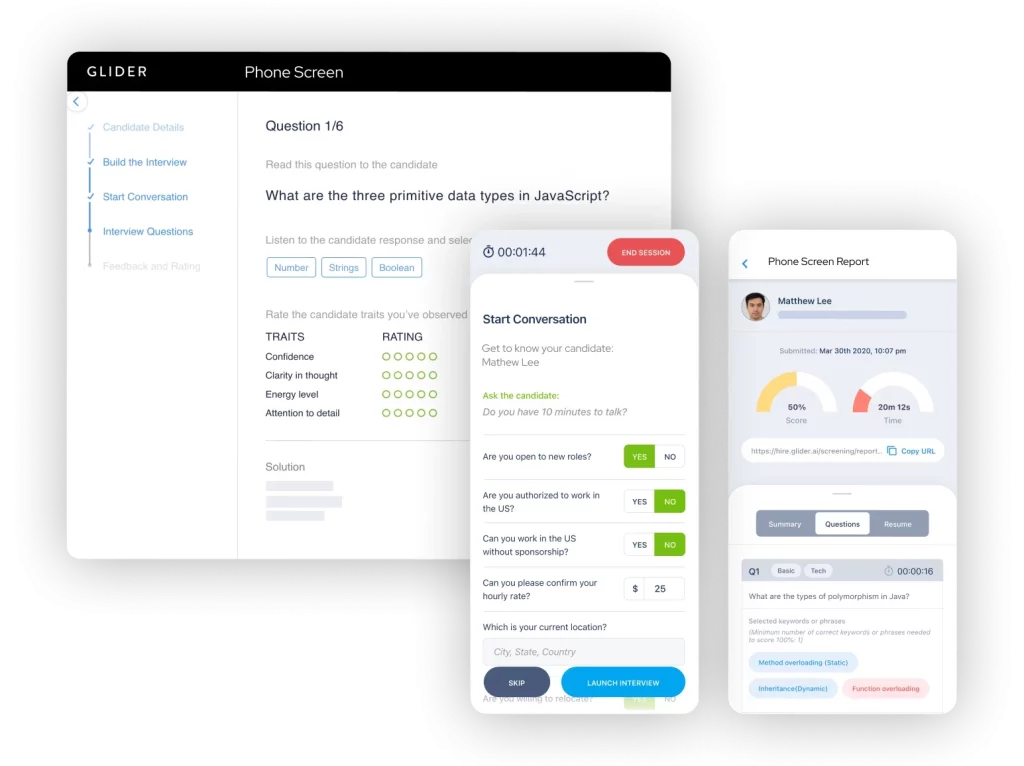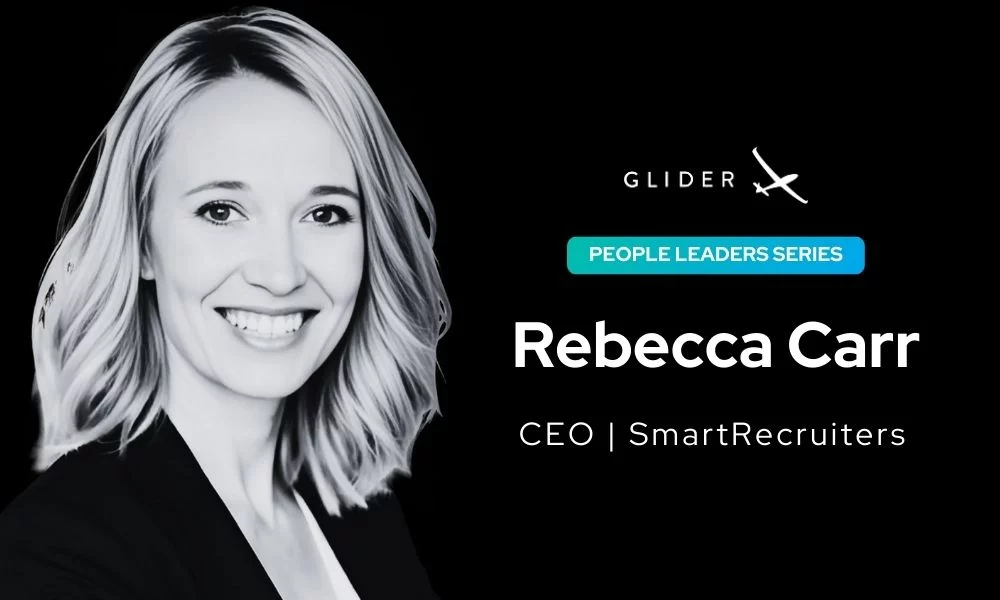Interview screening is a vital component of the hiring process. When a team has an open position, it can disrupt morale and hinder productivity. This often pressures hiring managers to fill the vacancy quickly. The absence of a team member can lead to a backlog of work and delays, especially if the role is specialized. This scenario is far from ideal for any organization. Therefore, it’s clear why employers might be inclined to hasten the vetting process. However, despite the temptation to speed things up, rushing through hiring is usually not advisable.
What is a Screening Interview?
A screening interview is a brief preliminary interview used to determine if an applicant is qualified for the position. Its purpose is to assess whether the candidate meets the job requirements and if their credentials align with the role your company is looking to fill.
Typically, a screening interview involves a quick review of the candidate’s employment and educational background, along with a few targeted questions. These questions focus on the applicant’s qualifications, salary expectations, and availability. Screening interviews can be conducted over the phone, via video chat, or in person. The outcome of this process will determine if the candidate advances to the next stage of the interview process.
Is a Screening Interview Different from a Formal Interview?
A screening interview is a specific step in the hiring process where the recruiter evaluates the applicant’s suitability for the job. It helps decide whether to include the candidate in the shortlist for further interviews. This is usually the initial interview a candidate undergoes when applying for a position.
The Importance of Screening Interviews
The hiring process is often time-consuming, and it’s important to ensure that the candidate is a good fit before investing further time and resources. Screening interviews are crucial for effectively vetting job applicants, helping to avoid wasting both your time and the candidate’s time. Rushing or skipping this step can lead to negative consequences that outweigh any immediate benefits. While a new hire might start quickly, this won’t matter if it later turns out they misrepresented their qualifications or omitted important information during the interview.
Beyond the financial aspect of finding a replacement, a bad hire can also negatively impact your team. While an open position can be frustrating, thorough candidate vetting is less costly and stressful in the long run. Proper screening helps ensure that the right person is brought onto the team, benefiting the organization overall.
Types of Screening Interviews

- Phone Screening Interviews
- Common for narrowing down a final list of candidates. With AI-guided phone screening, recruiters can identify qualified candidates by assessing responses to pre-set questions related to deep tech and subject matter expertise. The AI algorithms analyze these responses, providing valuable insights into the candidates’ qualifications and enabling recruiters to shortlist candidates.
- Video Screening Interviews
- Video interviewing is a method of conducting digitally enhanced interviews on online platforms that allows companies to conduct personal interviews remotely across the globe in a scalable and efficient manner. Video interviewing helps ease the candidate selection process and provides accessible evaluation data to provide a well-rounded profile of an applicant. This type of interviewing is more convenient and more cost-effective as compared to face-to-face interviews
- Chatbot Screening/ Text Screening
- AI chatbots conduct initial automated screenings, answering repetitive questions to identify qualified candidates. Chatbots can handle large volumes of candidates and provide immediate responses. AI chatbots can serve as dedicated recruiting assistants, employing AI sourcing and AI recruitment tools to ask pre-set screening questions, evaluate responses, and identify potential matches based on predefined criteria. This assists recruiters with efficient candidate screening before further engagements happen.
- Automated Screening
- AI-powered tools engage candidates and automatically advance those who meet qualifications, significantly reducing time-to-fill. Automated tools like Glider AI offer scalable candidate engagement and can handle complex assessments, providing recruiters with valuable insights into a candidate’s skills and suitability for the role.
Using Screening Technology for Efficient Time Management
For small hiring teams or large companies with many open positions, streamlining the hiring process is crucial. Leveraging AI technology can make faster hiring decisions possible. AI allows recruiters to create tailored interview questions, evaluate and score responses, and present ranked candidates with detailed reports to clients, ensuring efficient and high-quality hires.
- Automating Initial Screening: AI tools can automate the initial screening process, saving recruiters hours that would otherwise be spent reviewing resumes and conducting preliminary interviews by prompting vetted questions and candidate reports.
- Enhancing Candidate Evaluation: AI can evaluate candidate responses more objectively, reducing the risk of bias and ensuring that only the most qualified candidates move forward.
- Providing Detailed Reports: AI provides detailed reports on each candidate, including scores and skill assessments. This makes it easier for recruiters to present top candidates to clients and make informed hiring decisions.
Learn more about how AI powered screening interviews can help reduce time
How can a Recruiter Prepare for Applicant Screening?
Before conducting screening interviews, recruiters should complete several preparatory steps:
- Develop Hiring Criteria: Define criteria that accurately match the requirements of the position.
- Prepare Screening Interview Questions: AI-guided screening Interview enables recruiters to generate relevant and vetted questions by uploading the JD for any role across industries. Screening Software like Glider can score responses with AI-driven summaries, and present stack-ranked candidates with detailed client-ready candidate reports. This not only scales level 1 screening interviews and eliminates the requirement for SMEs but also ensures client-ready candidate reports, reducing time and costs, upskilling recruiters, and accelerating revenue per placement.
- Review Resumes: Look for any areas in the resumes that need clarification. This ensures that you have a clear understanding of the candidate’s background before the interview. AI resume screening software can review resumes without human bias, generate summaries, and prompt questions based on candidates’ skills and qualifications.
- Contact Candidates: Schedule a time for the interview and ensure that candidates are well-informed about the process.
- Document Responses: Take detailed notes during the interview to capture the candidate’s responses accurately. This helps in comparing candidates later and making the right decision. AI-guided interview software can take detailed notes and rank candidates according to their skills and fit based on interview responses, eliminating the manual need to review each application separately.
Top 10 Questions for Recruiters to ask in a Screening Interview
- What are your salary expectations? Clarify the candidate’s salary requirements early to align expectations with the position’s budget.
- Can you give me an overview of your professional background? Allow the candidate to summarize their experience, providing insights into their fit for the role.
- Why are you seeking a new opportunity? Understand the candidate’s motivations and evaluate their career goals and aspirations.
- How did you learn about this position? Discover how the candidate found out about the job, assessing the effectiveness of recruitment channels.
- Which skills from your previous roles make you suitable for this position? Assess specific abilities relevant to the job to gauge the candidate’s potential contribution.
- What drives your motivation at work? Explore what inspires the candidate professionally to determine cultural alignment and commitment.
- What work environment and management style do you thrive in? Evaluate compatibility with the company’s work culture and leadership approach.
- What attributes do you value in a company’s culture? Probe into the candidate’s cultural preferences to ensure alignment with organizational values.
- When would you be available to start, if hired? Determine the candidate’s availability to transition into the role effectively.
- Do you have any questions for us? Invite the candidate to seek clarification about the position or company, demonstrating their interest and preparation.
These questions aim to gather essential information while assessing the candidate’s suitability and enthusiasm for the role and organization.
Check out our FREE skill tests library to assess candidates
What to Focus on During a Screening Interview?
A well-executed screening interview is your best defense against unnecessary interviews. Without it, there’s a risk of senior team members investing time in interviewing candidates who, despite looking good on paper, aren’t suitable for the role. The purpose of a screening interview isn’t to finalize hiring decisions but rather to identify candidates who definitely won’t progress to the next stage. It ensures that only the most promising candidates proceed to further interviews.
Define Priorities
Consider your immediate hiring needs. For instance, if you require someone to start soon, a candidate with a lengthy notice period may not be suitable. Assess whether you prioritize specific qualifications, such as full-time experience or relocation flexibility, or if you’re open to accommodating exceptional talent.
Engage in Discussion
The screening call isn’t just about candidates answering questions; it’s an opportunity for you to clarify job details and the hiring process. Ensure candidates leave the call fully informed about the role and aware of what comes next. As a recruiter, this involves coordinating with hiring managers to provide comprehensive explanations.
Review Their Resume
Thoroughly reviewing candidates’ resumes is essential. It not only demonstrates respect but also allows you to verify information and address any gaps or queries during the interview.
Avoid Bias
Maintain objectivity during the screening interview to accurately assess each candidate’s suitability. Bias can compromise the effectiveness of the interview process. Whether you’re overly impressed by a candidate’s credentials or have reservations based on their application materials, strive to evaluate each candidate fairly and impartially to avoid making biased decisions.
Post Screening Interview Steps
After conducting the screening interview, the next step is to determine which candidates will proceed to a second interview. Review your notes and select those who best meet the hiring criteria and align culturally with the organization. If there is a hiring manager for the position, share and discuss your screening interview notes with them for additional insights.
Candidates who meet the educational and experiential requirements but exhibited concerns should be evaluated carefully. Even if they have differing preferences in work environment or management style, their possession of essential hard skills may warrant consideration for a second interview.
Improving Efficiency and Cost Savings through Enhanced Screening
Screening job applicants effectively is a crucial yet often underestimated aspect of finding the right candidate. Rushing through or skipping this process entirely can lead to more harm than good. Time equates to money, so optimizing your screening procedures to save valuable HR hours can yield significant cost reductions. Here are practical steps to save time, approximately an hour per candidate:
Define a Clear Candidate Profile
Begin by establishing a robust competency profile before advertising the position or conducting interviews. Define the specific skills, educational background, experience, and abilities required for the role. Consider interviewing individuals currently in similar positions to refine your job search criteria.
Ask yourself:
- What relevant experience should the ideal candidate possess?
- What educational background and training are necessary?
- What are the candidate’s career goals and strongest skills?
- What attitude is crucial for success in this role?
- Who would not fit well within the role?
- How well does the candidate align with our company culture?
Pre-Screen Candidates
Once applications start coming in, initiate a thorough pre-screening process to filter out unsuitable candidates early on. Avoid wasting time interviewing applicants who do not meet requirements or fit the company culture. Employ rigorous methods such as application reviews, phone screenings, and automated CV checks to swiftly gather pertinent information.
Utilize automated processes to streamline data collection and efficiently narrow down the candidate pool to the most qualified individuals. This approach ensures that only the best-suited candidates proceed to further stages of the hiring process, saving time and optimizing resource allocation.
Conclusion
Interview screening is essential to identify suitable candidates early in the hiring process, saving time and resources while ensuring you find the best fit for the role. Using advanced tools like Glider AI can enhance the efficiency and effectiveness of your screening process, ultimately leading to better hiring outcomes. By asking the right questions, and leveraging technology, recruiters can significantly improve the quality of their hires and reduce the time and cost associated with the hiring process.



